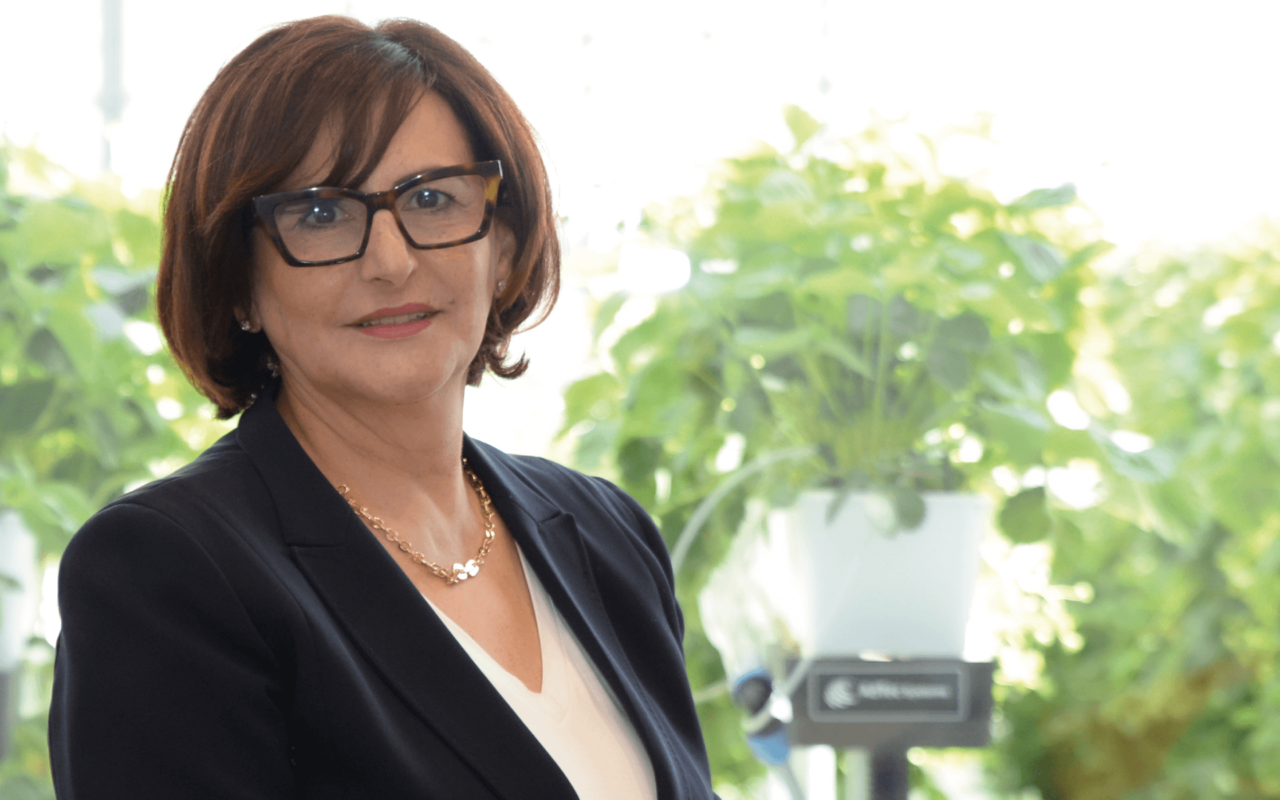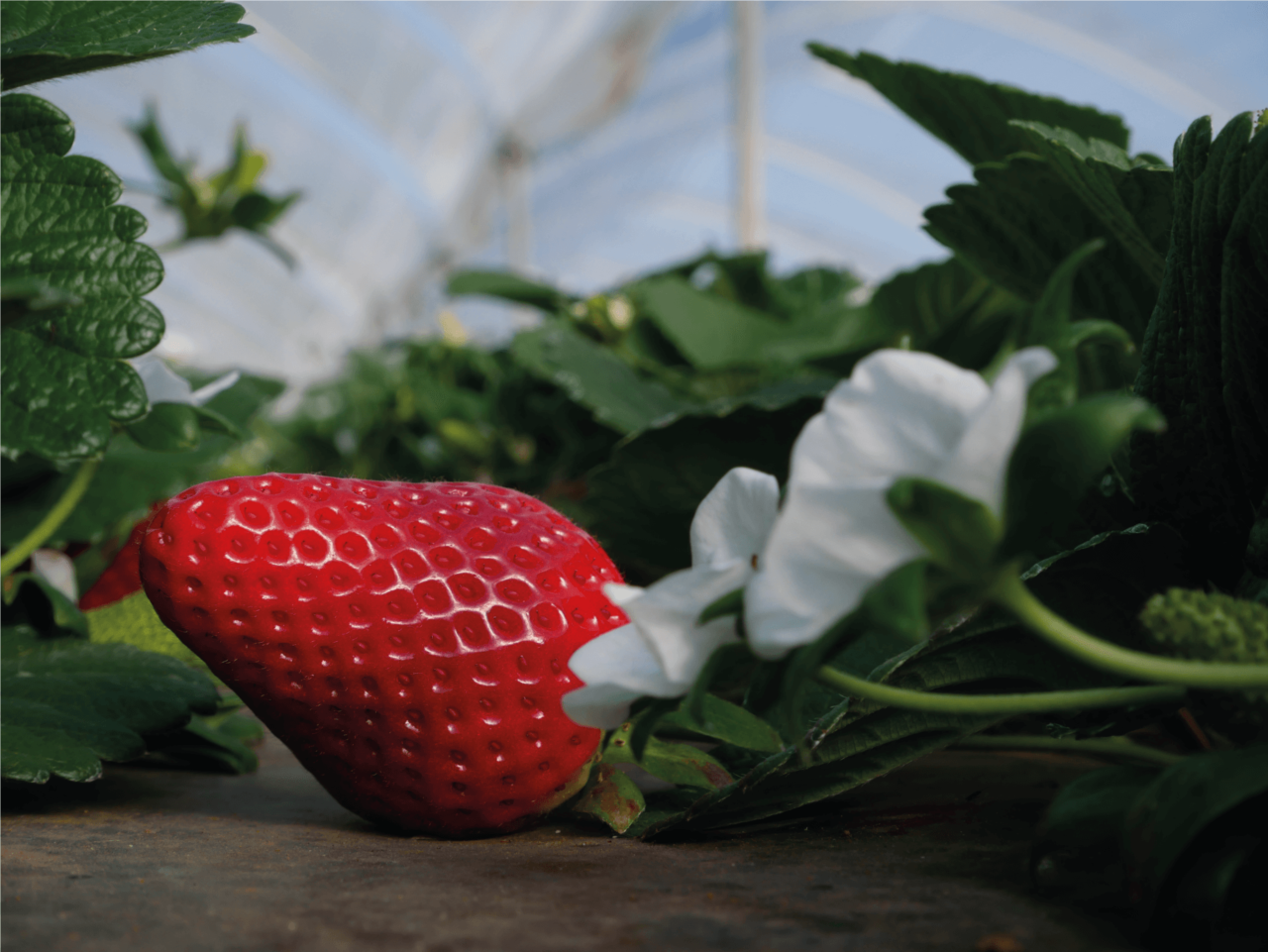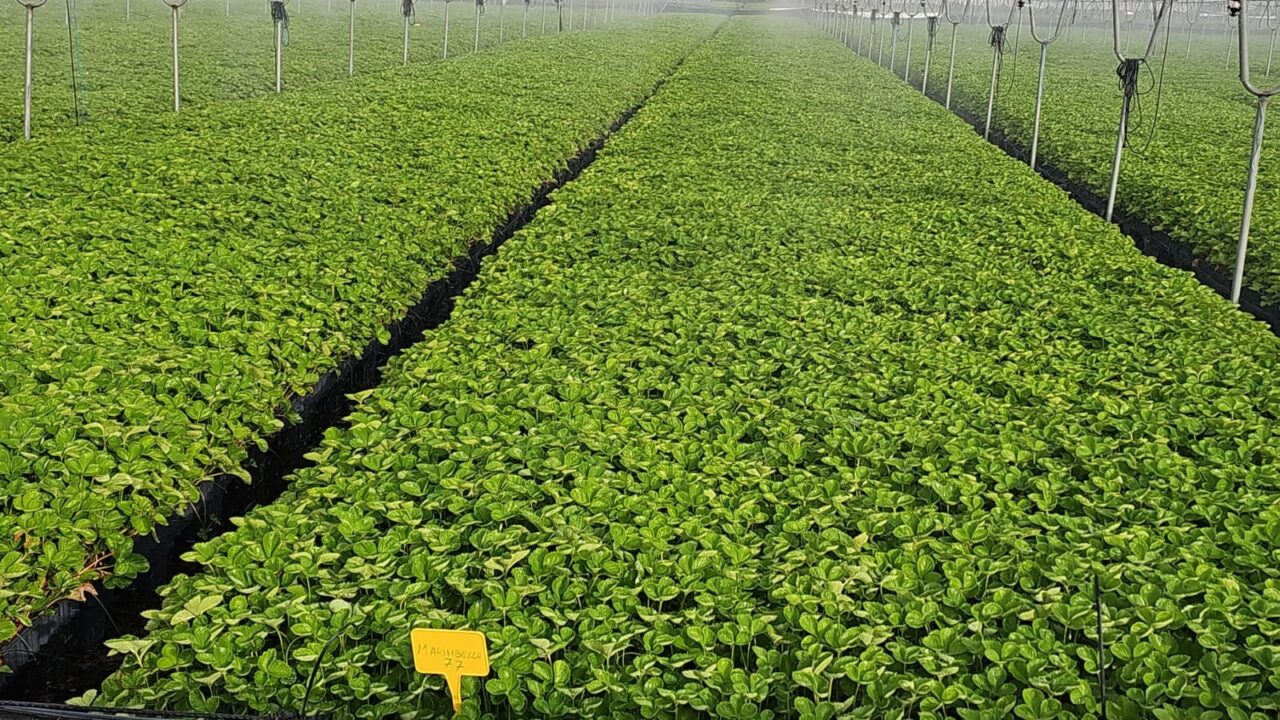Carmela Suriano (Nova Siri Genetics): “seedlings sold are increasing”

Earliness, market loyalty and sustainable techniques are the factors contributing to the growth of the strawberry sector. Ahead of the upcoming campaign, which is expected to start in mid-December, we analyzed the outlook with Carmela Suriano, Emea director of Nova Siri Genetics (in the opening photo).
Magnani - How does the next campaign look in terms of productivity? Is the amount of seedlings sold higher or lower than last year?
Suriano – The strawberry growers in the southern regions of our peninsula continue to show great interest in the strawberry varieties proposed by Nova Siri Genetics; therefore, the quantity of plants to be marketed from the nurseries is increasing compared to the last campaign.
Also this year we are satisfied with the development of the nurseries of our varieties, where the mother plants were transplanted in March. The licensee nurseries located in Poland and Spain are now ready for the uprooting of the fresh plant (its delivery will start in early October) and the delivery of the pot plants is underway.

Magnani – At what stage are the varieties Marimbella, Rossetta and Gioelita?
NSG 203 - Marimbella® continues its rise started already in 2020, compared to then the quantities destined for producers in Southern Italy are more than quintupled in this 2023/24 campaign that is about to begin. From 7 million in 2020, in fact, this year we expect a volume of about 40 million, with an increase of about 30% compared to the last campaign.
Among the characteristics that determine the success of this variety there are above all two: earliness and continuity of production, both of fundamental importance for producers and buyers of large-scale retail trade. With the pot plants and, subsequently, with the fresh ones, in fact, the production of Marimbella® strawberries begins already in mid-December and guarantees a supply to the market of about 6 months.
The varieties NSG 465 - Rossetta and Melissa are giving satisfactory results as well.
Our variety offer as a whole, guarantees a production calendar of about 8 months a year, with competitive advantages for producers who manage to remain on the market, encouraging greater loyalty.
Magnani - What are the main requests coming from the producers?
Surely the demand for early varieties – i.e. those that guarantee satisfactory production already from the first winter months - is one of the main demands coming from producers, not only of southern Italy but of the entire Mediterranean basin. In addition to this, the other requirements of the world of production concern varieties that give scalar productions, good shelf-life and productive yields that can ensure satisfactory profit margins, given the large increases in production costs to be faced. Moreover, there is a growing need to produce with sustainable techniques, i.e. with low environmental impact and able to guarantee healthy products.

Magnani - How is the situation of the Italian strawberry sector today?
There are many changes affecting the strawberry sector in Italy, as well as in the rest of the world. First of all, the climate changes taking place impose the need for varieties that can efficiently cope with sudden and very strong weather phenomena that are occurring more and more often. In addition to this, there is the phenomenon of soil fatigue, which leads producers to be more focused on new cultivation techniques, such as soilless cultivation. Furthermore, the EU imposes increasingly stringent limits on the use of plant protection products in agriculture, which pushes producers towards alternative methods, such as organic and zero residue, aiming at greater environmental sustainability.
Magnani - On which strands is your research focusing the most?
In such a changing environment as we have seen in recent years, the task of research is to understand the needs of all players in the supply chain and look for efficient solutions.
At Nova Siri Genetics, we study in depth the changes and future challenges of the sector in order to offer strawberry and berries varieties that can best satisfy all stakeholders, from nurserymen to the end market. This is why plant rusticity has always been the mainstay of our genetic improvement programme; rustic plants are tolerant to the main pathogens that attack the crop, perform better on tired soils and are more resistant to temperature fluctuations. This makes it possible to achieve sustainability objectives, in terms of less use of plant protection products, but also satisfactory production in terms of both quantity and quality.
Furthermore, our research is focused on cultivars with good shelf life and optimal fruit characteristics, in order to meet the needs of buyers and end consumers.
Magnani - Is the interest of countries like Spain, Greece and Morocco growing?
NSG's strawberry cultivars have already been present for some time in Spain, Greece, Morocco and more generally in the Mediterranean basin. We are also registering a growing interest from these areas, where we are expanding our market share, as well as demand from potentially interesting overseas countries.
Source: ItaliaFruit


